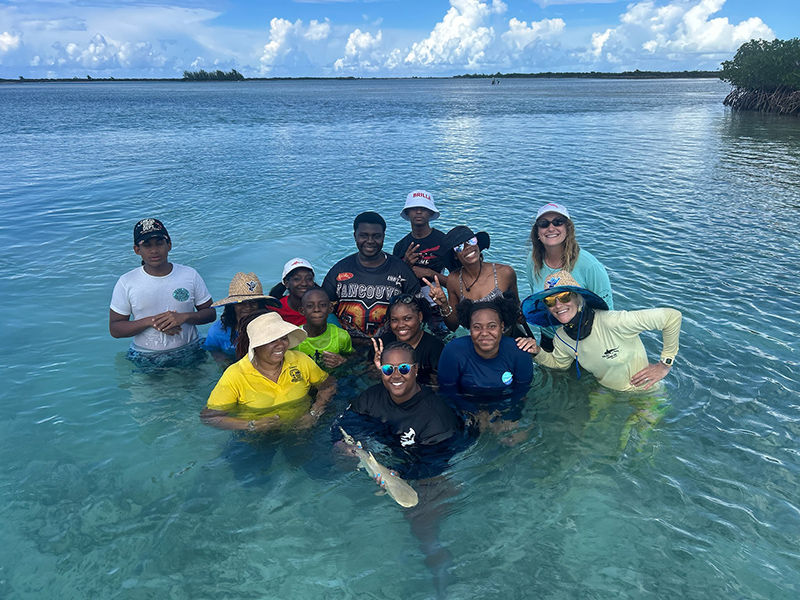Meet Marine Scientist Rose Santana
- Sharks4Kids

- Mar 4, 2021
- 2 min read
Rose Santana was born in Dominican Republic and moved to Germany. As a child she would always go out to sea with her grandfather who was a fisherman and eventually earned a Bachelors degree in Biotechnology. She knew what she really wanted was to study the ocean though, so eventually she moved to Miami, Florida and earned her second Bachelors degree in Marine Biology. She was the President of her schools chapter of the Society of Women in Marine Science and eventually was selected to participate in a 21-Day research expedition in the Canadian Arctic, where she used drones and ROVs to look at ice formations. Currently she is the lab manager of the Aquatic Ecology and Ecotoxicology laboratory at Florida International University, where she studies the effects of metal contaminants on aquatic predator-prey interactions.
We are excited to be working with Rose to create some JAWsome new INFOGRAPHICS
Thanks to Rose for sharing her shark story with us!

1. What is your favorite shark and why?
Whale sharks are my favorites. For some reason, they just seem so majestic.
2. What is one shark you would like to dive with/ study?
Either whale sharks or hammerheads. I've yet to encounter a hammerhead while diving, but they seem like very interesting animals to be able to observe in the wild
3. Can you tell us a little about your research? What does a typical day in the field look like?
My research focuses primarily on animal behavior, and how their behavior is affected by metal contamination. Honestly, there is no typical day in the field. Often times I am in the field just to observe animals in their natural habitats. For some reason, things always tend to go wrong though, either the weather doesn't like me or equipment malfunctions.

4. Why do you think science/research is so important for shark/ocean conservation?
I think it's important because by understanding these creatures, their behavior, their lifestyle, and their importance to our ecosystems, we will be better able to protect them. Without sharks, there are no healthy oceans and without healthy oceans, there is no healthy planet.
5. What is the most challenging thing about your research?
Personally, I think it's the fact that nothing ever goes as planned. To understand how animals are affected by metal contamination, you have to establish what we can consider 'healthy' or 'normal' behavior. This can be tricky though because animals are a lot like people, they have their own personalities. Sometimes it's hard to determine if their behavior is being altered by contaminants affecting their physiological or behavioral traits, or if this particular animal is just a little bonkers.
6. What is one thing you wish everyone knew about sharks?
I wish people knew how important they actually are to our ecosystems. They tend to get a bad rep because people fear what they don't understand. But I think if people realized just how critical they are to maintaining a healthy planet, they might care a little bit more.






















